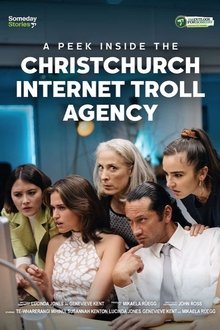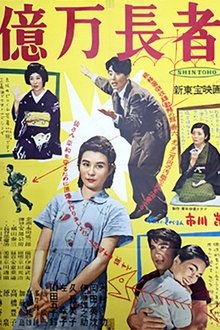"Hitler's Folly" explores what might have happened if Adolf Hitler's art career had been more successful and instead of becoming an evil dictator, he was inspired to become an animator like Walt Disney.
Related Movies
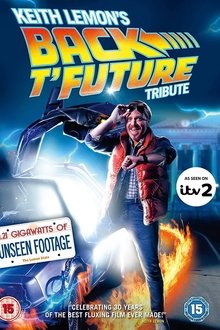
Keith Lemon's Back t'Future Tribute (2015)
A one-off 90 minute special in which Keith Lemon pays tribute to the iconic Back To The Future films.
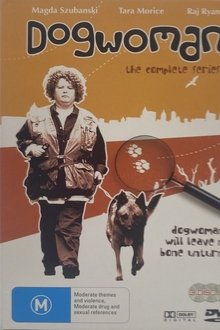
Dogwoman: Dead Dog Walking (2000)
Margaret O'Halloran is a dog trainer with a unique talent and a nose for a mystery. Now an old lady has been savaged to death, her faithful dog is the prime suspect. But Margaret smells a murderer of the two legged variety.

The Division (2023)
The Division employs time agents to go and fix events from the past to make a better future. Presented in a mockumentary style, this project was created as part of a 48 hour film competition to make a trailer for a non-existent movie.
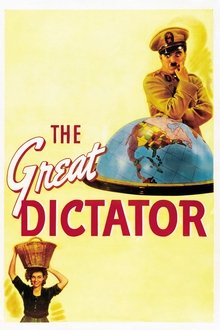
The Great Dictator (1940)
Dictator Adenoid Hynkel tries to expand his empire while a poor Jewish barber tries to avoid persecution from Hynkel's regime.
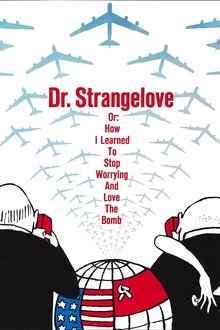
Dr. Strangelove or: How I Learned to Stop Worrying and Love the Bomb (1964)
After the insane General Jack D. Ripper initiates a nuclear strike on the Soviet Union, a war room full of politicians, generals and a Russian diplomat all frantically try to stop it.
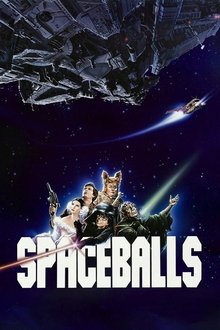
Spaceballs (1987)
When the nefarious Dark Helmet hatches a plan to snatch Princess Vespa and steal her planet's air, space-bum-for-hire Lone Starr and his clueless sidekick fly to the rescue. Along the way, they meet Yogurt, who puts Lone Starr wise to the power of "The Schwartz." Can he master it in time to save the day?
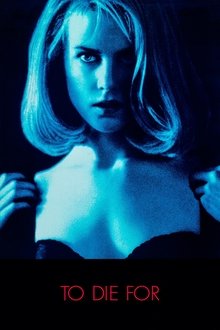
To Die For (1995)
Suzanne Stone wants to be a world-famous news anchor and she is willing to do anything to get what she wants. What she lacks in intelligence, she makes up for in cold determination and diabolical wiles. As she pursues her goal with relentless focus, she is forced to destroy anything and anyone that may stand in her way, regardless of the ultimate cost or means necessary.
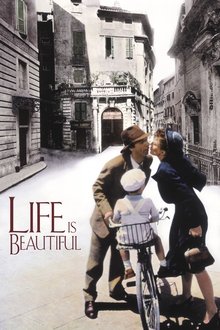
Life Is Beautiful (1997)
A touching story of an Italian book seller of Jewish ancestry who lives in his own little fairy tale. His creative and happy life would come to an abrupt halt when his entire family is deported to a concentration camp during World War II. While locked up he tries to convince his son that the whole thing is just a game.

Night and Fog (1959)
Filmmaker Alain Resnais documents the atrocities behind the walls of Hitler's concentration camps.
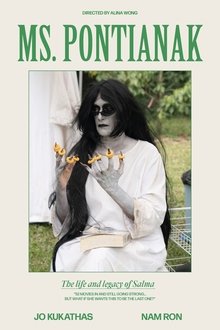
Ms. Pontianak (2022)
A beloved horror actress questions the triviality of her career starring in Pontianak films, all the while being filmed by a group of documentary filmmakers.
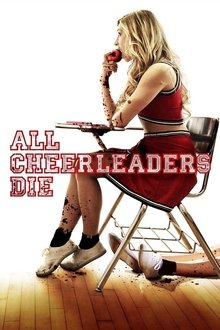
All Cheerleaders Die (2013)
When tragedy rocks Blackfoot High, rebellious outsider Mäddy Killian shocks the student body by joining the cheerleading squad. After a confrontation with the football team, Mäddy and her new cheerleader friends are sent on a supernatural roller coaster ride which leaves a path of destruction none of them may be able to escape.
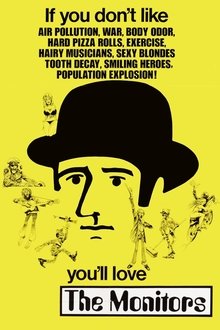
The Monitors (1969)
Earthlings chafe at the peace established by a benevolent alien race and set about to rebel.

Olympia Part One: Festival of the Nations (1938)
Starting with a long and lyrical overture, evoking the origins of the Olympic Games in ancient Greece, Riefenstahl covers twenty-one athletic events in the first half of this two-part love letter to the human body and spirit, culminating with the marathon, where Jesse Owens became the first track and field athlete to win four gold medals in a single Olympics.

Olympia Part Two: Festival of Beauty (1938)
Part two of Leni Riefenstahl's monumental examination of the 1938 Olympic Games, the cameras leave the main stadium and venture into the many halls and fields deployed for such sports as fencing, polo, cycling, and the modern pentathlon, which was won by American Glenn Morris.

A Hard Day's Night (1964)
Capturing John Lennon, Paul McCartney, George Harrison and Ringo Starr in their electrifying element, 'A Hard Day's Night' is a wildly irreverent journey through this pastiche of a day in the life of The Beatles during 1964. The band have to use all their guile and wit to avoid the pursuing fans and press to reach their scheduled television performance, in spite of Paul's troublemaking grandfather and Ringo's arrest.
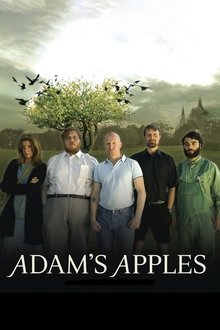
Adam's Apples (2005)
A neo-nazi sentenced to community service at a church clashes with the blindly devotional priest.
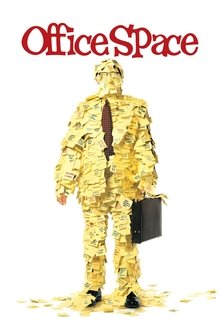
Office Space (1999)
A depressed white-collar worker tries hypnotherapy, only to find himself in a perpetual state of devil-may-care bliss that prompts him to start living by his own rules, and hatch a hapless attempt to embezzle money from his soul-killing employers.
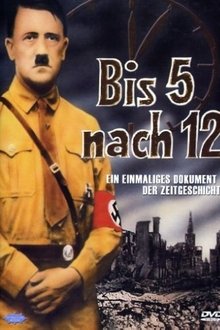
Adolf Hitler - Ein Volk, ein Reich, ein Führer: Dokumente der Zeitgeschichte (1953)
The film begins with the First World War and ends in 1945. Without exception, recordings from this period were used, which came from weekly news reports from different countries. Previously unpublished scenes about the private life of Adolf Hitler and Eva Braun were also shown for the first time. The film was originally built into a frame story. The Off Commentary begins with the words: "This film [...] is a document of delusion that on the way to power tore an entire people and a whole world into disaster. This film portrays the suffering of a generation that only ended five to twelve. " The film premiered in Cologne on November 20, 1953, but was immediately banned by Federal Interior Minister Gerhard Schröder in agreement with the interior ministers of the federal states of the Federal Republic of Germany.
